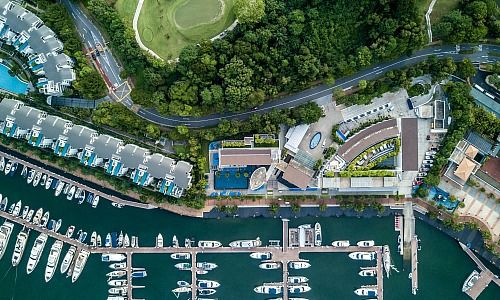Wealthy Taiwanese have been increasingly selecting Singapore as the offshore booking center of choice and the latest Hong Kong rules could further tip the scale.
New rules required by the Securities and Futures Commission (SFC) as of early July 2019 to classify all investment products as either complex or non-complex constrains the environment for sophisticated investors seeking access to more esoteric exposures, an increasingly growing need in the late stage market cycle.
Whilst many sophisticated Hong Kong and mainland China clients are unlikely to shift preferred locations merely due to tightened access to the product universe, Taiwan clients have already shown willingness to book in either or both booking centers. Could the move have an impact on future offshore Taiwan wealth opportunities?
Dual Booking Center Strategy
Offshore private banking clients from Taiwan are increasingly seeking to diversify their booking center exposure beyond even Hong Kong and Switzerland to Singapore. With relatively older wealth sources than its Greater China counterparts, offshore Taiwan wealth is no stranger to global diversification and flows to Singapore is merely a natural extension.
In addition to global diversification, there is also an issue of perceived political risk. Some existing Taiwan clients have already considered the prospects of booking assets in both centers. First-timers heading offshore may forgo Hong Kong altogether.
Modest But Meaningful Opportunity
Larger banks such as UBS noticed this modest but meaningful opportunity from banking offshore Taiwan clients in Singapore and had begun setting up desks several years ago to fill the demand.
What’s more, Taiwan clients are known to be more experienced investors (having kick-started wealth generation significantly earlier than its Greater China counterparts in the 1950s) with a greater appetite for diverse products and markets.
Greater Diversification Needs
The region’s FDI (foreign direct investment) behavior is perhaps most indicative of its investor maturity with diversified flows across developed (Singapore, US), emerging (China) and frontier (Vietnam) markets.
«Within Greater China, Taiwan clients have relatively greater diversification needs especially with regards to markets,» says one unnamed head of Taiwan at a large European private bank.
«The new rules did not cause any big swings but for all new Taiwan clients that were sitting on the fence, this was the tipping point. This is especially the case regarding new bond issuances. Taiwan clients are more likely to make unique requests whereas other Greater China clients chase headline names,» he adds.
Traditional Tailwinds
In addition to trading needs, Singapore’s reputation as an asset management center also bodes well for players targeting Taiwanese high net worth individuals with older wealth and transferring assets to the next generation, both traditional tailwinds for delegation to funds or discretionary mandates.
Whilst not growing at any rate near China, wealth generation remains robust in Taiwan. According to Knight Frank’s 2019 ‹Wealth Report› Taipei is the city with the eighth largest ultra high net worth (minimum $30 million assets) population at 1,519 and is expected to reach 1,864 by 2023.
Closer Second Look
«Growing local uncertainty is set to drive more wealth outflows,» says a former wealth management head of a major local bank in Taiwan, highlighting potential changes to the local regulations such as the use of offshore banking units (OBU), a regime that allows money to flow more freely between the onshore and offshore world traditionally for local businesses to gain access to foreign capital markets.
«And with the addition of the new rules in Hong Kong, clients that are double booked or accessing offshore wealth managers for the first time will give Singapore a closer second look,» he adds.



























